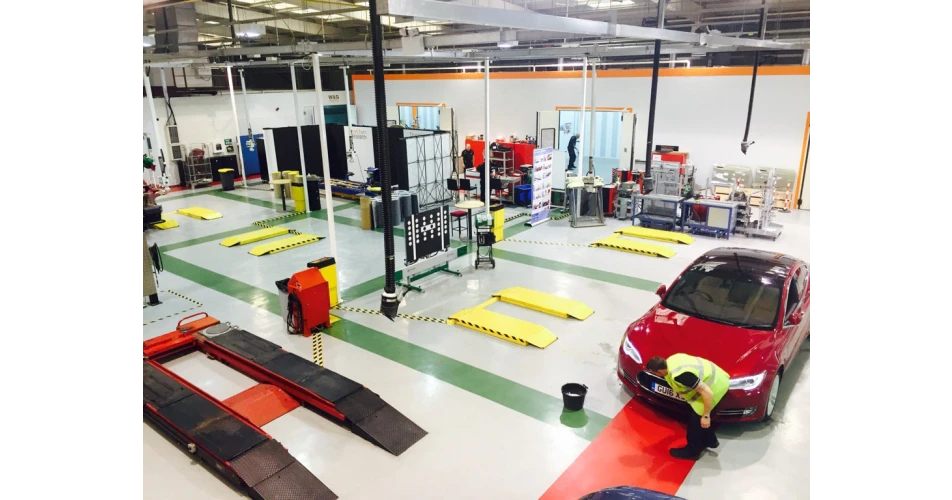The bodyshop of the future must be fully focussed on the customer and making use of all available technology to deliver an efficient and high-tech experience. That was the view of speakers and cross-industry experts who gathered to discuss what the ‘Bodyshop of the Future’ would look like as part of the Thatcham Research ‘Repair Focus’ conference.
Bringing together over 450 influential players from the accident repair, insurance and vehicle manufacturing industries the conference sparked a lively panel debate recognising the future technology, people and investment challenges facing the crash repair industry.
Whilst the need to provide a high tech customer experience was one hot topic, experts on the panels were also keen to identify some of the changes and challenges immediately facing the crash repair industry in a world of connected, complex and mixed material cars.
There was broad agreement that the investment power of larger groups would inevitably lead to further consolidation of the repair sector. It was also stated that repairers will also likely need to look at providing a range of additional vehicle services on top of structural repair, such as re-calibration of safety systems, cosmetic work and associated mechanical work, in order to achieve shorter repair cycle times.
Continued investment in skills and equipment and the need to improve the image of the industry in order to attract high calibre talent were also seen as future imperatives by the ‘Skills’ panel, chaired by Tom Hudd - Technical Services Manager at UK Assist Accident Repair Centres. Panellists agreed the need to recruit from a wide range of different skill sets, including technicians, people leaders, process improvers and innovators, and to focus on nurturing and developing these people to produce future managers. Apprentices will also continue to have a vital role.
Dean Lander, Head of Operations at Thatcham Research agreed, “Supporting young talent to enter this industry is imperative. However, if you cannot then offer leadership and direction, then despite investing sums of money into an apprentices’ development, they will not stay in your business. It has been proven time and time again that mentor training and management training are critical.”
Underpinning the future bodyshop is the ability for the repair industry to gain early knowledge of technology trends enabling sound investments in people and equipment. There was broad agreement amongst contributors that Thatcham Research have an important strategic role to play as a conduit between insurer, manufacturer and repairer, as well as in identifying and sharing new technical challenges and the development of new skills.
Thatcham Research Chief Executive, Peter Shaw concluded the event saying, “It’s clear that there’s now a greater understanding of the trajectory for the industry and an increasingly urgent need for investment in people, knowledge, skills and equipment to strengthen and future-proof the repair sector.” The industry needs to shift from analogue to digital to reflect manufacturer and customer expectations and for those who can do so the future is very exciting."
